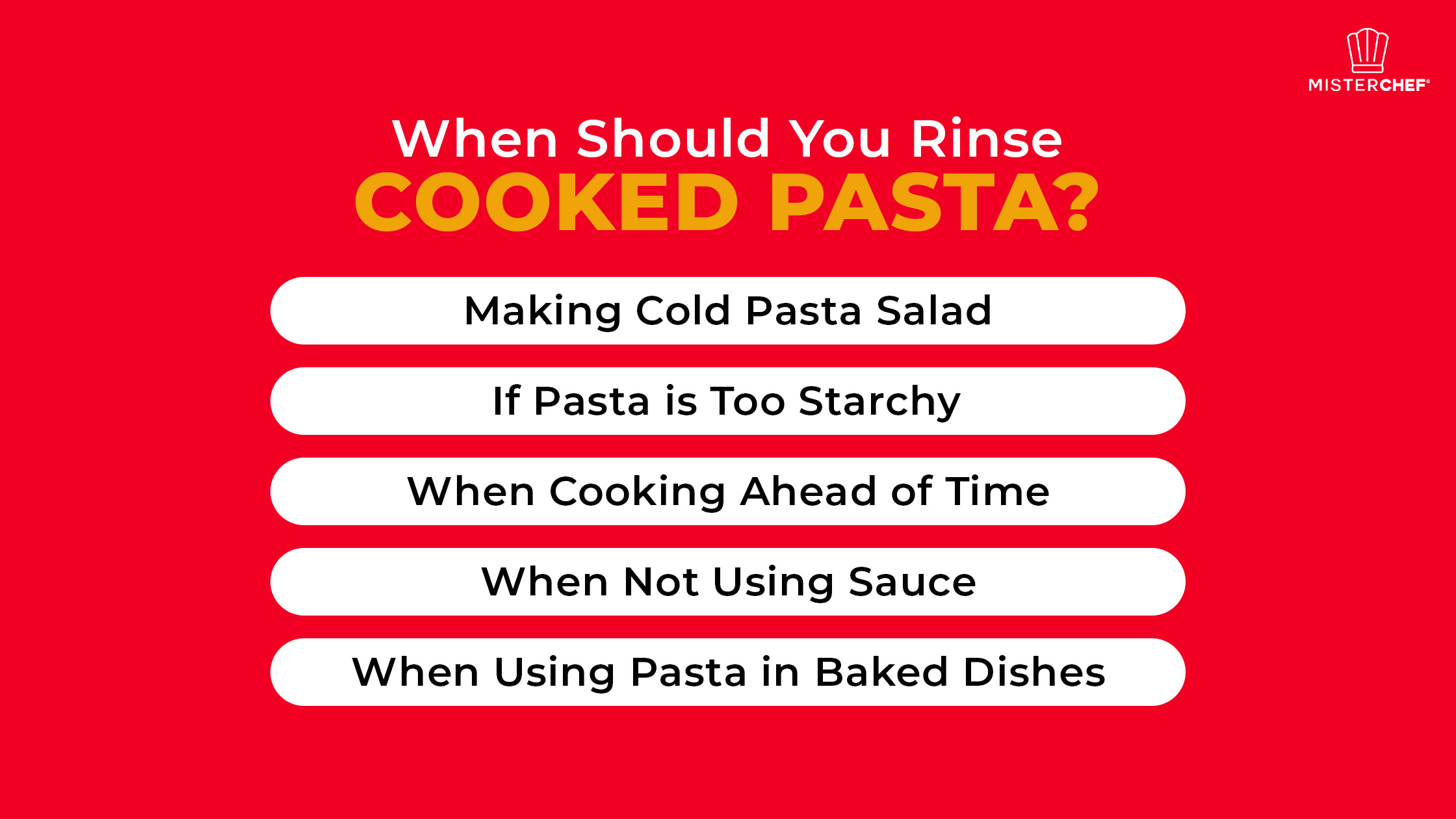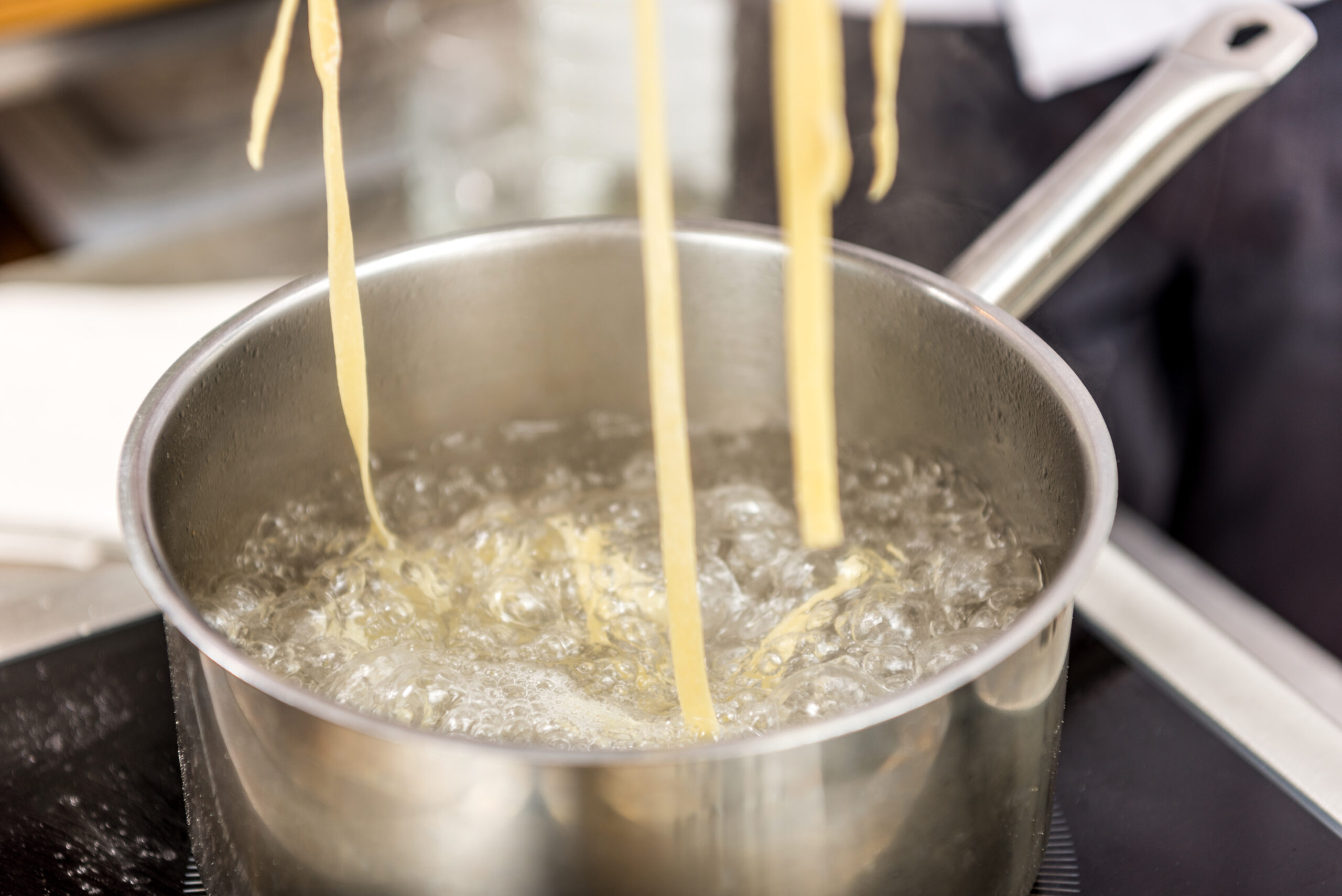Let’s get right into it. No, it’s not recommended to rinse your pasta after cooking. Doing so washes away the starch that helps the sauce cling to the pasta. Also, rinsing can cool down your pasta and leave you with a watery dish. But there are times when rinsing your pasta is advised. Let’s explore why this practice became popular and when it’s actually necessary.
Why Did Rinsing Pasta Become Popular?
Rinsing pasta became popular for a few reasons. In the past, pasta often had excess starch on the surface that could make it sticky or gummy. Rinsing was a quick solution to improve texture. Also, the practice helped cool down pasta for salads or when immediate serving wasn’t needed. Over time, this method was adopted widely, even when not always necessary, leading to its popularity.
When Should You Rinse Cooked Pasta?

Rinsing your pasta is a good idea when:
Making Cold Pasta Salad: When using pasta for cold pasta salads, always rinse the pasta after boiling. This stops the cooking process, prevents it from getting mushy, and keeps the noodles from sticking together. It also ensures the pasta is at the right temperature for a salad.
If Pasta is Too Starchy: Sometimes, especially with certain types of pasta or brands, you might find the pasta too starchy and sticking together even after cooking. A quick rinse can remove the excess starch.
When Cooking Ahead of Time: If you have to cook pasta ahead of time, rinsing it after after cooking in rapidly boiling water can keep it al dente. After rinsing, mix it with a bit of oil to stop it from sticking, then store it. When you’re ready to serve the final dish, you can quickly reheat the pasta in hot water or mix it directly with a warm sauce.
When Not Using Sauce: If you plan to eat pasta without a sauce, rinsing in cold water can prevent it from becoming sticky and clumpy. This is more about personal texture preference.
When Using Pasta in Baked Dishes: If you’re preparing a baked pasta dish like lasagna or baked ziti, rinsing noodles can prevent it from absorbing too much sauce and becoming too soft during baking. Rinsing in cold pasta cooking water ensures that the pasta maintains a firmer texture when baked with the rest of the ingredients.
How to Drain Excess Water from Your Pasta?
Once the hot pasta is cooked to your liking, carefully pour it into the colander positioned over the sink. Hold the colander with both hands and give it a gentle shake to ensure all the boiling water drains out. For long pasta like spaghetti, you might need to stir it with a spoon or gently shake the colander back and forth to dislodge any pasta water trapped between the strands.
How to Fix Mushy Pasta?
If you end up with mushy pasta noodles, there are a few ways to salvage it. One way is to spread the overcooked pasta on a baking sheet and place it under the broiler for a few minutes. This can help dry out the pasta slightly and improve its texture. Be sure to watch it closely to avoid burning.
Another method is to turn the mushy pasta into a baked dish. Mix it with some sauce, cheese, and perhaps additional ingredients like vegetables or cooked meat, then bake it until the top is golden and crispy.
Lastly, consider using the mushy pasta in soups or casseroles where the texture is less noticeable. Adding it to a broth-based soup or incorporating it into a casserole with other ingredients can make the softness of the pasta less of an issue.
Summary
While it’s generally not recommended to rinse your pasta after cooking, there are exceptions like when you want to make cold salads, to prevent stickiness in non-sauced dishes, before adding it to stir-fries, or if you’re prepping it for a baked dish.
want to make every pasta dish a masterpiece? Check out MisterChef’s pasta machine. Whether you’re cooking pasta like spaghetti, fettuccine, or any pasta in between, our pasta maker is effortlessly adjustable for thickness and designed for durability. Shop with us today.






